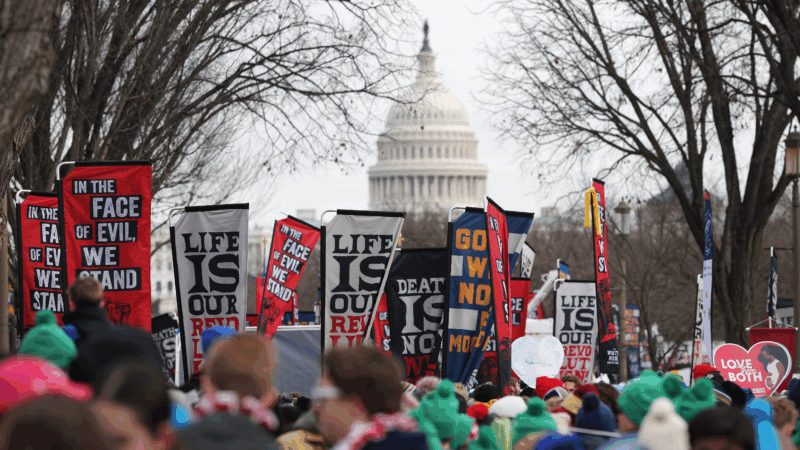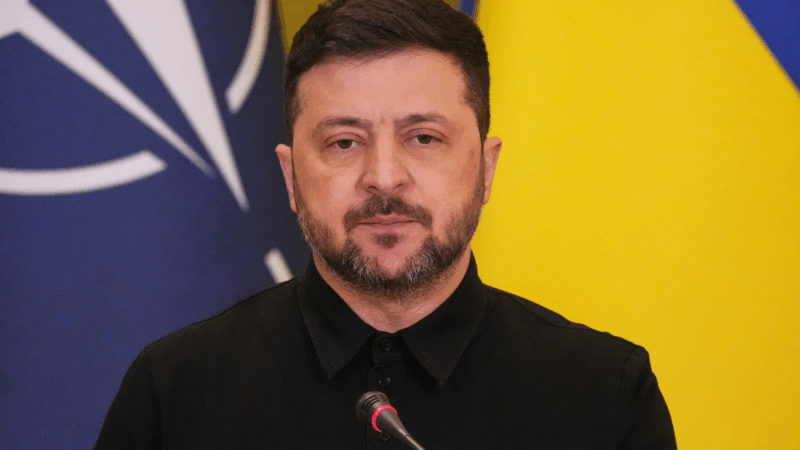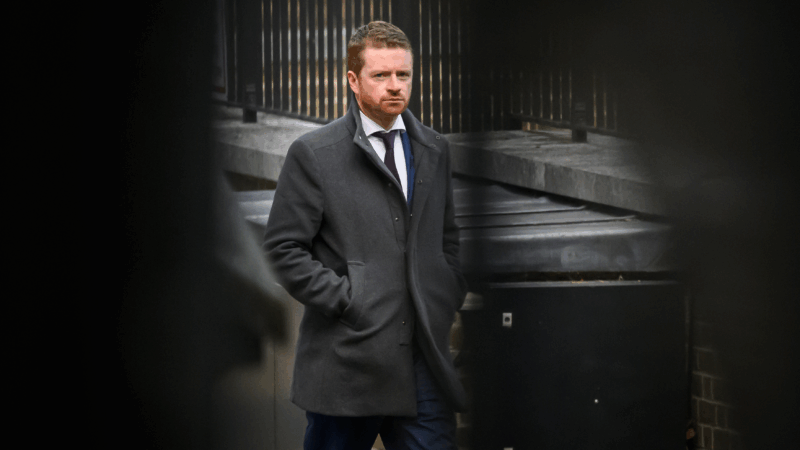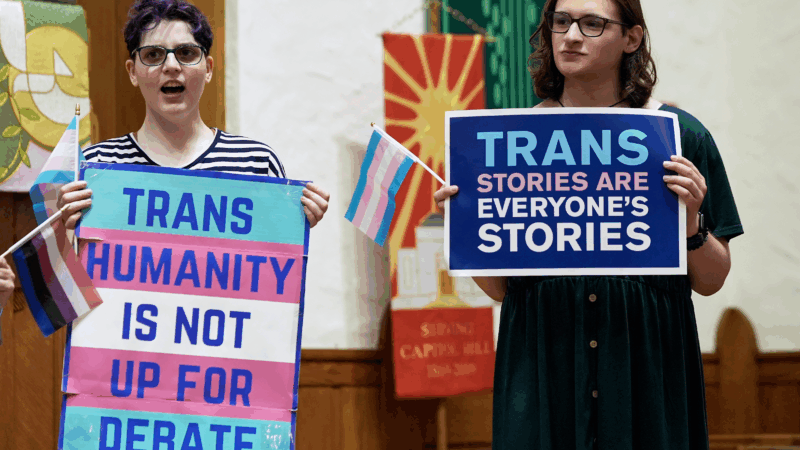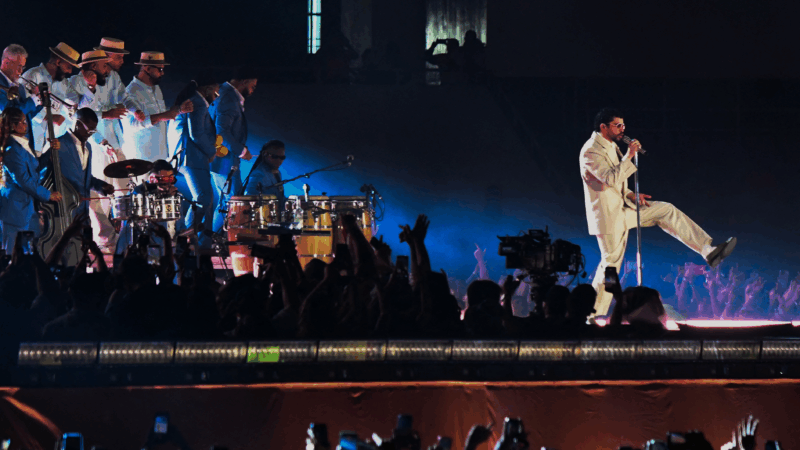Sudan’s war is 2 years in and shows no signs of slowing, as talks take place
LONDON — Foreign ministers from 20 countries are meeting in London Tuesday as part of a diplomatic effort to restart stalled peace talks over Sudan’s civil war that began two years ago. The United Nations says the conflict has prompted the world’s worst humanitarian crisis, and the most devastating famine in decades.
Despite the war’s unprecedented impact, with as many as 150,000 people dead, and almost a third of the country’s pre-war population displaced, there has been little concerted international action to address the crisis.
The U.K., France and Germany are cohosting Wednesday’s conference, but have not invited either of the warring factions themselves; the Sudanese Armed Forces — widely considered to be the de-facto government — and its erstwhile paramilitary partners, known as the Rapid Support Forces — or RSF.
Both forces cooperated to launch a coup against the country’s fledgling civilian-led government in 2021. Civilian rule had emerged after the fall of longtime autocrat, Omar al-Bashir, who was deposed during a 2019 revolution that stunned the region. Sudan’s Armed Forces had become the senior partner in a new transitional government, before tensions between the Armed Forces and the RSF ignited a full-blown war in April 2023.

Sudanese officials have expressed anger they were not invited to the talks, as well as frustration at the inclusion of countries that many consider responsible for fanning and fueling the conflict. There is mounting evidence, for instance, that the United Arab Emirates have been arming the Rapid Support Forces, which stand accused of perpetrating genocidal acts against African ethnic groups in Darfur. The RSF has also been accused of carrying out other atrocities during the war, including the systematic use of sexual violence, the targeting of medical facilities, and persistent looting in communities that have fallen under their control.
Last week Sudan’s military led government initiated a case against the UAE at the International Court of Justice (ICJ), in which it accused the Arab nation of being complicit in a genocide against African ethnic groups, perpetrated by the RSF and several allied Arab militias.
While rights groups have accused both sides of war crimes, including extrajudicial killings and the blocking of humanitarian aid, they have blamed the vast majority of atrocities on the RSF. The U.S., U.N. and several rights groups have meanwhile also said the RSF committed acts of genocide during the war, largely against groups of ethnic Masalits, Zagawas and Furs in Darfur. The last genocide in Darfur took place more than 20 years ago, and was carried out by a militia group called the “Janjaweed,” that became globally infamous. Members of the group have, in part, evolved to become the RSF.
Last month the Sudanese army regained control of the capital city Khartoum from the RSF. But while the gradual reconstruction of that shattered city begins, the fighting in the west of the country has intensified.

Over the past week, the RSF intensified its months-long siege on the city of El Fasher in the Western region of Darfur. It is the last Darfuri city that the group does not yet control. The attacks have caused international outrage, with more than 320 people already killed, according to a local grassroots support network called Emergency Response Rooms.
The group said most of those deaths occurred inside two aid camps. One of them, called Zamzam, is the largest displacement camp in Sudan and had hosted more than half a million people, with a famine inside the camp declared last year. The U.N. recently said between 60,000 to 80,000 households in the camp had been displaced by the recent fighting and had fled into the center of El Fasher, or the surrounding desert.
A resident from El Fasher, who asked not to be named, told NPR the situation was “extremely difficult,” and said hundreds of thousands of those displaced from the Zamzam camp were now crammed into the city’s streets. “Right now, even in my own house there are more than 100 women and children,” said the resident, adding that those still out on the streets are surviving “without water, without food, without health services — and unfortunately no one is asking about them, no one is taking care of them.”
“The situation is very bad, it’s suffering,” the resident said. “Not just suffering, torture.”
Most of Zamzam’s residents had sought refuge in the camp during the last major conflict to wrack Darfur back in 2003, having been driven from their homes by the Janjaweed militia group.

Satellite footage analyzed by the Yale Humanitarian Research Lab showed evidence of the RSF’s attack on the Zamzam. Images indicated that more than 200 armed pick-up trucks, known as “technicals” had swarmed the camp between April 11 and April 14, and the camp’s main market had been torched to the ground during that period.
“ At this point, the RSF has faced no significant consequences for mass atrocities, tantamount to genocide,” said Nathaniel Raymond, executive director of that Yale research team. “If they are left alone without any international interdiction, they will be fundamentally in position to complete the slaughter of non-Arab black African civilians from the Zagawa, the Fur and the Masalit, who have sought shelter for 20 years in El Fasher and Zamzam.”
On Sunday an RSF spokesperson, Al Fatih Qurashi, said the RSF had taken over the camp, and said it had harbored fighters aligned with the Sudanese Armed Forces. Widespread reports by local rights groups detailed some of the worst atrocities perpetrated during the current war had occurred inside the camp. These included the rounding up and executing of refugees, as well as aid workers from an aid group called Relief International.
The paramilitary group denied killing any civilians, but Relief International, which operated the only remaining medical facility in the camp, said members of the RSF had executed its workers.
“It was, in our opinion, a brutal and deliberate assault on health facilities,” said Mart Atterton, regional director for Africa at Relief International. “Very sadly, nine of our humanitarian colleagues — these are dedicated doctors, ambulance referral drivers and our area team leader — were executed while carrying out life saving work for some of the most vulnerable people in Sudan.”
March for Life attendees may have been exposed to measles, DC Health warns
D.C. health officials are contacting people possibly exposed to measles at the March for Life in January, as confirmed cases rise nationwide.
U.S. gave Ukraine and Russia June deadline to reach peace agreement, Zelenskyy says
"The Americans are proposing the parties end the war by the beginning of this summer," Zelenskyy said, speaking to reporters on Friday.
U.K. leader’s chief of staff quits over hiring of Epstein friend as U.S. ambassador
British Prime Minister Keir Starmer's chief of staff resigned Sunday over the furor surrounding the appointment of Peter Mandelson as U.K. ambassador to the U.S. despite his ties to Jeffrey Epstein.
Trump administration lauds plastic surgeons’ statement on trans surgery for minors
A patient who came to regret the top surgery she got as a teen won a $2 million malpractice suit. Then, the American Society of Plastic Surgeons clarified its position that surgery is not recommended for transgender minors.
What you should know about Bad Bunny’s Super Bowl halftime show
Will the Puerto Rican superstar bring out any special guests? Will there be controversy? Here's what you should know about what could be the most significant concert of the year.
Sunday Puzzle: -IUM Pandemonium
NPR's Ayesha Rascoe plays the puzzle with KPBS listener Anthony Baio and Weekend Edition Puzzlemaster Will Shortz.

